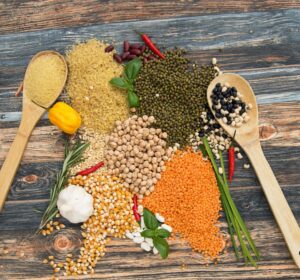By Nance Ebert, Contributing Writer

REGION – There are many strategies that can help with your digestion and regularity. To keep things moving, it is important to move your body in whatever form of exercise you are able to do and enjoy, drink plenty of water, and eat enough fiber-rich foods, including fruits and vegetables and more.
Whether you choose to take a daily walk, participate in an exercise class, or ride your bicycle, there is a correlation between moving your body and encouraging a bowel movement. Exercise helps with your digestion.
Water is another important tool to help keep you regular. Drinking six to eight glasses of water helps to flush out toxins, keep you hydrated and help give a feeling of fullness. Dehydration is a common cause of constipation. Staying hydrated helps things move. Some people like to add fruit slices, berries or even cucumber to their water to enhance the flavor and encourage them to drink more. Others choose to carry a water bottle with them and sip from it throughout the day.
Fiber has many benefits
Adding fiber promotes gut health and has many benefits. Although it is the part of our food that is not digestible, it’s still very important. Fruits, nuts, grains, beans and legumes and vegetables all contain fiber, some more than others. Processed foods and those with added sugar tend to be lower in fiber and can contribute to constipation.
“By going through the body undigested, fiber can help move stuff along in your digestive tract, relieving constipation, a common occurrence as we age,” said Sangeeta Pradhan, a registered clinical dietician at Charles River Medical Associates in Framingham. “Many of you may have heard that fiber can help lower cholesterol and stabilize high blood sugars. But did you know that fiber can actually feed the beneficial bacteria in your digestive tract? Turns out that these little critters can actually reduce inflammation (the basis of all chronic disease) in the body, so having a thriving population of these ‘good guys’ translates to good health.”
“So, go ahead and load up on those fresh fruits, veggies, whole grains, nuts and beans,” she added. “The fiber in these foods can help you in more ways than one.”
Specific foods which help
Several specific foods have been referenced to aid in regularity. Foods like apples, avocados (which contain a large amount of magnesium which acts as a laxative), and kiwi, which stimulates your digestive track and speeds up intestinal tract time to help relieve constipation. Probiotics like kefir can also help to soften stool. This fermented milk beverage adds good bacteria to the gut. Many people add this liquid to smoothies and really enjoy the creaminess and benefits it holds.
In an article in Runner’s World by Allison Young, she references ten foods that make you go. These include oranges, water, leafy greens, black beans, prunes, almonds, coffee, kefir, wheat bran and raspberries. These berries contain eight grams of fiber in one cup and are a popular choice for many runners.
What about coffee?
 Many people swear by the fact that, in the morning when they drink their cup of coffee, this hot beverage works like a charm. Coffee does contain caffeine, which is a diuretic. It can activate your colon. However, some people add cream or milk to their morning cup of Joe, which can also stimulate the activity of the colon.
Many people swear by the fact that, in the morning when they drink their cup of coffee, this hot beverage works like a charm. Coffee does contain caffeine, which is a diuretic. It can activate your colon. However, some people add cream or milk to their morning cup of Joe, which can also stimulate the activity of the colon.
The timing can also play a role and not the coffee itself. The activity of the colon increases after waking up. Even if you drank a decaffeinated coffee, the result might be the same. Consuming coffee might work for some; however, it becomes questionable if you consume more than four cups each day.
Choose healthy fats
“Despite being touted as ‘healthy,’ low-fat diets can actually contribute greatly to constipation,” said Sarah Neumann Haske, a registered dietician specializing in digestive health. “Consuming adequate amounts of fat in your diet will actually help normalize intestinal motility and aid in lubrication of the bowels.”
“Be sure you’re choosing healthier fats, she emphasized, “like olives or olive oil, avocados or avocado oil, nuts, seeds and nut butters, coconut oil, grass-fed ghee, organic eggs with the yolk and wild caught fatty fish.”
RELATED CONTENT:
Plant-based “superfoods” touted to prevent disease and prolong life (fiftyplusadvocate.com)
Coffee tastes good and can be good for you (fiftyplusadvocate.com)
Five spices that can help keep you healthy (fiftyplusadvocate.com)












